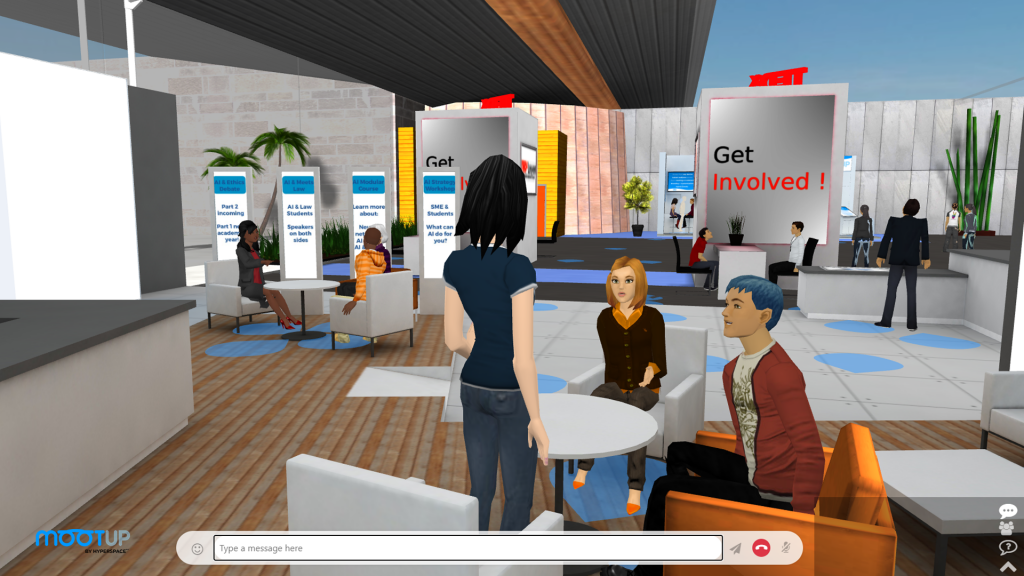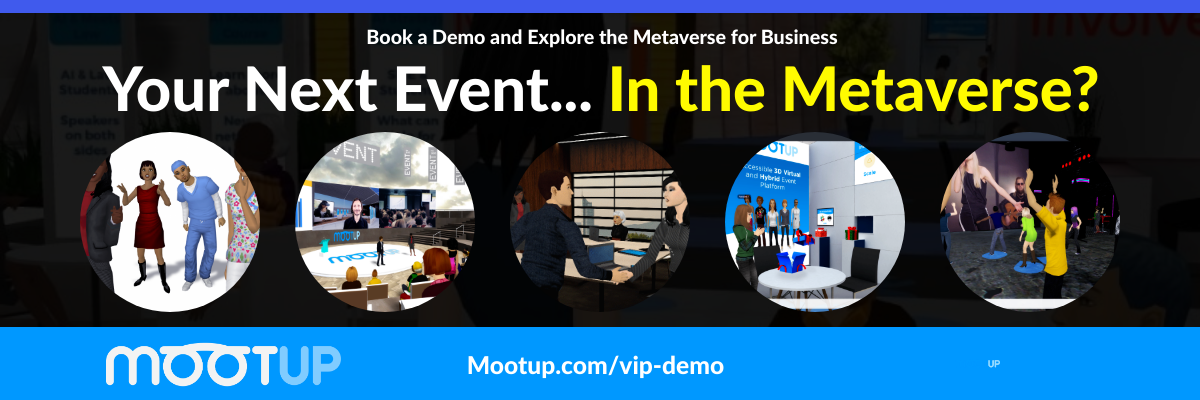Organizing a virtual event is no easy feat. But to ensure the success of your next virtual gathering, you need to understand how attendees felt about their experience. That’s where virtual event feedback survey questions come into play. Gathering valuable insights from your guests can help you identify areas for improvement and enhance future events. In this blog post, we’ll explore how to create an effective survey, tips for writing good questions, best practices for administering it, and examples of significant feedback inquiries that will give you the data needed to make informed decisions moving forward.
Table of Contents:
- How to Create an Effective Virtual Event Feedback Survey
- Tips for Writing Effective Virtual Event Feedback Questions
- Best Practices for Administering a Virtual Event Feedback Survey
- Examples of Good Virtual Event Feedback Questions
- FAQs about Virtual Event Feedback Survey Questions
- Conclusion
How to Create an Effective Virtual Event Feedback Survey
Creating practical virtual event feedback survey questions is essential for any industry professional looking to get the most out of their events. Surveys provide valuable insights into what worked and what didn’t, enabling professionals to improve future events and ensure attendees get the best experience possible. When crafting a survey, it is critical to contemplate the queries you intend to ask and how you will disseminate your survey.
Designing the Survey Questions:
The key to creating an effective virtual event feedback survey is asking relevant questions that capture meaningful responses from attendees. Start by considering what information would help you understand your event’s success, such as satisfaction ratings or improvement areas. To gain insight into the event, including open-ended questions can help capture more detailed feedback from attendees.
Choosing the Right Platform for Your Survey:
Once you have determined which type of questions you want to ask in your survey, it’s time to decide on a delivery platform; depending on the requirements and preferences, one has numerous options when selecting an outlet for their survey, from web-based surveys to emails, SMS, and even paper versions. Consider cost-effectiveness, ease of use, and scalability when selecting a platform for administering your virtual event feedback survey.
To achieve the highest response rates from your virtual event participants, there are several measures you can take. Ensure that clear instructions on completing the survey are given; incentivize with discounts or freebies; remind via email; ensure they know their responses will remain anonymous if desired and personalize emails sent out with each respondent’s name. This way, people will feel comfortable voicing their opinions honestly without feeling pressured – thus boosting turnout considerably. Incorporate relevant keywords into this text for increased impact while exercising careful grammar and punctuation throughout- no exclamation points allowed.

After collecting data through a virtual event feedback survey, analyzing results becomes crucial to derive actionable insights from them. Interpreting the results could involve varying strategies, contingent on whether qualitative or quantitative information was gathered. For example, if numerical scores were given, averages may need calculating, whereas if textual responses were received, themes might need identifying among answers provided. Additionally, visualization tools such as graphs help make sense of large amounts of data quickly, allowing trends and patterns within responses to become apparent much faster than manual analysis alone.
Creating an effective virtual event feedback survey is essential to ensure that you are gathering meaningful data and insights about your events. By utilizing the strategies outlined in this article, you can construct inquiries that will provide valuable feedback for your organization. Now, look at specific strategies for writing practical virtual event feedback questions.
Key Takeaway: As an experienced professional, it’s essential to create a virtual event feedback survey that effectively captures meaningful responses from attendees. This means carefully considering the types of questions you want to ask and choosing the right platform for delivery. Additionally, incentivizing participation with discounts or freebies can help boost turnout. Incorporating visualizations into your analysis will allow you to make sense of data quickly – so don’t forget the icing on top.
Tips for Writing Effective Virtual Event Feedback Questions
Writing practical virtual event feedback questions can be a challenge, but it’s essential for gathering valuable insights from your attendees. Consider these pointers when crafting your virtual event feedback questions to ensure the best possible results.
A. Keep it Short and Simple:
When crafting your survey questions, limit each to just two or three sentences. This will help ensure that respondents aren’t overwhelmed by long-winded inquiries and increase the likelihood of getting an accurate response. Additionally, use language that is easy to understand; avoid jargon or technical terms whenever possible.
B. Incorporating open-ended queries into your questionnaire can be advantageous, allowing respondents to express their thoughts more completely and accurately than closed-ended ones. Therefore, include some open-ended questions when creating your survey to gain deeper insights into attendee sentiment and preferences regarding the event and its content and logistics management processes.
C. Make Sure Your Questions are Clear and Unambiguous: To get meaningful responses from attendees, ensure all of your survey questions are written clearly without any room for misinterpretation or ambiguity—avoiding double negatives where possible. Also, consider how different types of people may interpret certain words differently; if necessary, add additional context around specific terms used to minimize confusion among respondents who may not have had prior experience with them before participating in the event.
Writing practical virtual event feedback questions is critical to gathering valuable and actionable data. Following best survey administration practices will help ensure you get the most out of your efforts.
Key Takeaway: To acquire helpful comments from event partakers, it is vital to make surveys brief and straightforward, employ open-ended queries where practicable, and guarantee all questions are lucid and explicit. Doing so can avoid any confusion or misinterpretation of the survey’s content, allowing for more accurate responses.
Best Practices for Administering a Virtual Event Feedback Survey
When administering a virtual event feedback survey, timing is critical. Surveys should be sent out promptly after the event to capture fresh impressions and insights from participants. The sooner you can send out your survey, the more likely you will get accurate responses reflecting attendees’ experiences during the event. Incentives, such as discounts or rewards for responding to surveys, can significantly boost response rates and obtain enough data to make sound conclusions about your event.
Personalizing your surveys with customized messages is also an effective way of increasing participant engagement. A personalized message lets them know that their feedback is valued and appreciated, encouraging them to participate more willingly in the survey process. Additionally, using language tailored specifically for each participant will make them feel like they are being addressed directly rather than just another anonymous respondent not taken seriously by the event organizer.
The best practices for administering a virtual event feedback survey are essential to understanding how well attendees received the event. By asking targeted questions, organizers can gain valuable insights into what worked and what could be improved in future events.
“Gather valuable feedback from virtual event participants by sending out surveys promptly and personalizing them with customized messages. #VirtualEvents #FeedbackSurveys”Click to Tweet
Examples of Good Virtual Event Feedback Questions
Organizers can pose inquiries that gauge participants’ general contentment with the virtual event, such as “What was your level of satisfaction?” and “What did you enjoy most?”. By utilizing these inquiries, organizers can pinpoint areas that need improvement for future events and recognize what is working well.
Organizers can gain insight into attendees’ overall experience of the virtual event by utilizing general satisfaction questions, such as “How content were you with the virtual event?” and “What was your favorite part of the virtual event?”. With this feedback, organizers can pinpoint areas that need improvement for future events and recognize what is working well. Additionally, it is beneficial to ask more specific questions about different aspects of the experience such as technology, content, networking opportunities, etc., e.g., “How did you find using our online platform for this event?” or “Did any particular sessions stand out to you?” This will give them an idea which features are most appreciated by attendees and which may require some adjustments before next time.
MootUp simplifies engagement for your attendees by allowing them to join your immersive 3D experience with just one click, regardless of their device – from smartphones to VR headsets. With a mix of gamification, over 1,000 gestures, and a wide range of social interactions, instant engagement is built into the platform.
“Organizers can gain valuable insight into their virtual event’s success by asking attendees general & specific satisfaction questions. #VirtualEvents #NoCodePlatform”Click to Tweet
FAQs about Virtual Event Feedback Survey Questions
How do you ask for feedback on a virtual event?
Feedback is essential for any event, virtual or otherwise. To get the most helpful feedback from your virtual event, ask attendees specific questions about their experience and provide an easy way to respond. For example, you could send out a survey after the event with multiple-choice questions about the presentation’s content, technical issues encountered during streaming, or overall satisfaction with the experience. Additionally, encourage people to leave comments in response boxes so they can express their opinions freely and offer more detailed feedback. Finally, make sure that all responses are anonymous if desired by respondents.
What should I ask in the event feedback form?
Questions to include in an event feedback form should focus on the attendees’ overall experience. Questions may ask about the quality of content presented, ease of navigation and use of technology, satisfaction with customer service provided, any suggestions for improvement or new features that could be added, and how likely they are to recommend this event or platform to others. Additionally, questions can also assess what topics were most interesting or relevant for attendees and their level of engagement throughout the event.
How do you measure the effectiveness of a virtual event?
Measuring a virtual event’s effectiveness requires assessing both quantitative and qualitative metrics. Quantitatively, this can include attendance numbers, engagement levels (e.g., time spent in-event), and post-event survey results. Qualitatively, it is essential to evaluate the overall experience for attendees – from the ease of access to technical support during the event – and assess feedback on content quality and relevance to ensure that goals are met. By considering both types of data points together, organizers can gain insight into their virtual events’ success.
What are good survey questions to ask after a presentation?
1. What did you think of the presentation?
2. How likely are you to use this platform for virtual or hybrid events in the future?
3. Did it meet your expectations, and why/why not?
4. Was anything omitted from the demonstration that would have been beneficial in organizing an occasion?
5. What features most appealed to you when using this platform for virtual or hybrid events?
6. Are there any areas where we can improve our no-code platform to make hosting a virtual or hybrid event more accessible and more efficient?
Conclusion
As event industry professionals, creating compelling virtual event feedback surveys is essential to understand the attendee experience and measuring success. Crafting the correct queries can offer valuable insights into what went well and areas for improvement in future events. By following best practices such as avoiding leading questions or bias, providing clear instructions on taking the survey, and asking relevant virtual event feedback survey questions explicitly tailored to your audience’s needs – you will have a better chance of getting accurate results from attendees.
MootUp offers a browser-based platform that guarantees the readiness of your Metaverse event technology infrastructure for the future. This platform provides attendees with convenient access, regardless of the device they use – a smartphone, tablet, laptop, or VR/AR headset – without requiring them to download or install any software.
Join MootUp and take your virtual events to the next level. Our no-code platform allows you to quickly create, host, and measure feedback from your hybrid event attendees with our easy-to-use survey questions.

